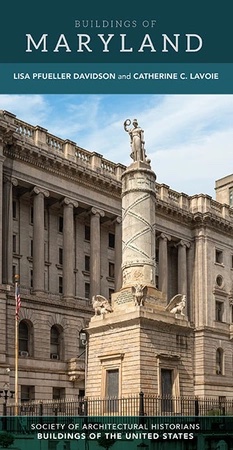The Cecil County seat was moved from Charlestown to Elkton in 1787 to bring the center of government to a growing port town. Situated on the Elk River and the major land routes between Philadelphia and Baltimore, Elkton enjoyed early success in the flour packing that predated Baltimore’s dominance in that industry. It also had a diversified manufacturing and shipping-based economy. While eclipsed by the rise of industrial Baltimore in the nineteenth century, important post—Civil War expansion in Elkton included canneries, pulp mills, machine shops, and fertilizer plants. Elkton continued to thrive into the twentieth century, with an unusual local industry. Between roughly 1913 and 1938, Maryland marriage laws allowed weddings with no waiting period or blood test, making Elkton, the first stop on trains from the north with a courthouse, the self-proclaimed Wedding Capital of the East.
Writing Credits
If SAH Archipedia has been useful to you, please consider supporting it.
SAH Archipedia tells the story of the United States through its buildings, landscapes, and cities. This freely available resource empowers the public with authoritative knowledge that deepens their understanding and appreciation of the built environment. But the Society of Architectural Historians, which created SAH Archipedia with University of Virginia Press, needs your support to maintain the high-caliber research, writing, photography, cartography, editing, design, and programming that make SAH Archipedia a trusted online resource available to all who value the history of place, heritage tourism, and learning.

